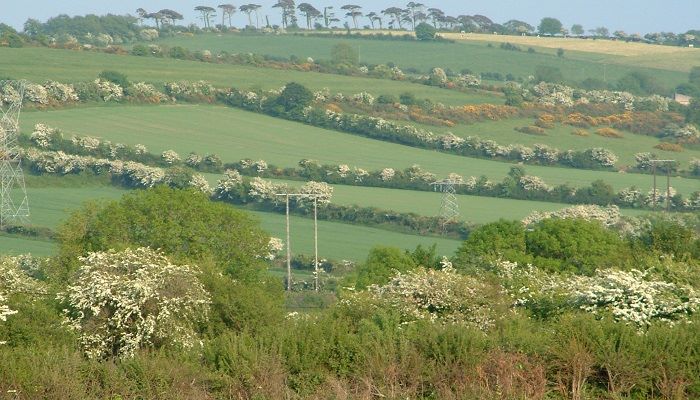05 June 2024
‘Standardising of carbon credits an opportunity to bring money into agriculture’

The future introduction of carbon removals and carbon farming (CRCF) regulations by the EU will create opportunities for Irish agriculture.
That’s according to David Dolan, Nuffield Scholar and dairy farmer, who joined a recent episode of the Teagasc Signpost Series webinar, where he detailed the key findings of his studies in the area of ‘net zero emissions farming – the challenges and opportunities for farmers and co-ops’.
As part of his Nuffield Scholarship, David travelled to counties such as the UK, Italy, Costa Rica, Brazil, New Zealand, US, Northern Ireland and Belgium to identify how carbon farming initiatives are being embraced and implemented, and how some companies are either producing renewable energy or purchasing carbon credits to offset against their greenhouse gas emissions.
The ability to offset is currently not available to Irish agriculture, with David explaining: “At the moment, there are no standardised frameworks or methodologies for carbon credits, but luckily the EU are in the process of standardising a framework for the voluntary framework of carbon removals, which would allow small and medium sized businesses to participate in the carbon market.
“One tonne of carbon is estimated to be worth €100 by the year 2030 and €200 by the year 2045 so this could represent a huge opportunity for small and medium sized businesses, which would include farms.”
He added: “The EU standardising carbon credits will open doors for new money to be brought into Irish agriculture.”
In Ireland, the EPA is responsible for the reporting of greenhouse gases to the Intergovernmental Panel on Climate Change (IPCC) through the National Inventory Report, which details emissions from energy, industry, agriculture, land use, waste and other sources. As emissions are reported on a sectorial basis, David explained that this limits agriculture’s ability to counteract greenhouse gas emissions through the implementation of renewable energy or afforestation, as these are accounted for in the respective sectors or energy or land use.
David explained: “A farm business, for example, whose main activities would belong in the agricultural sector could decide to plant part of their farm in forestry or grow an energy crop for renewable energy production. Those two activities would get accounted for in the land use or the energy categories. Similarly, if a farmer decided to install an AD plant and take food waste from their local town or produce biomethane from their own business, those activities would be accounted for in the waste or energy categories.
“And so, this aspect of the inventories is acting as a barrier to innovative approaches to greenhouse gas emissions within the Irish economy.
“The targets for 2050 are net zero for the economy and not the individual sectors. If we are serious about reaching those targets, probably a more sophisticated and innovated approach to our accounting system needs to be put in place in order to allow for innovative approaches to greenhouse gas emissions reductions,” David said.
David also touched on some of the innovative work ongoing in the area of reducing greenhouse gases from agriculture. This included the Solohead Research farm, the Farm Zero C project and ARCZero. From such projects and other findings from his Nuffield Scholarship, David noted that “not ever farm will get to net zero, but equally some farms can be net positive”, which opens the opportunity for carbon trading between farms in order to get all of agriculture to net zero.
David also provided a number of recommendations, which he developed over the course of his Nuffield Scholarship. These included the moving of data entering the National Inventory Report from Tier 1 to Tier 2 (country level data) or Tier 3 (farm level data). Other recommendations include: the development of a long-term plan to give farmers the necessary confidence to make investments to reach Ireland’s emissions reductions targets; the development of a carbon baseline programme, so farmers know the carbon stocks present on their farms; and the creation of a carbon insetting bank, in order to regulate the market and to facilitate carbon trading between farmers and co-ops to ensure that carbon credits produced on Irish farms stay within Irish agriculture before trading with the outside world.
The above is a brief summary of David’s presentation from the Signpost Series webinar. Listen to a full recoding of this webinar below:
Find out more about the Signpost Series webinars here.
